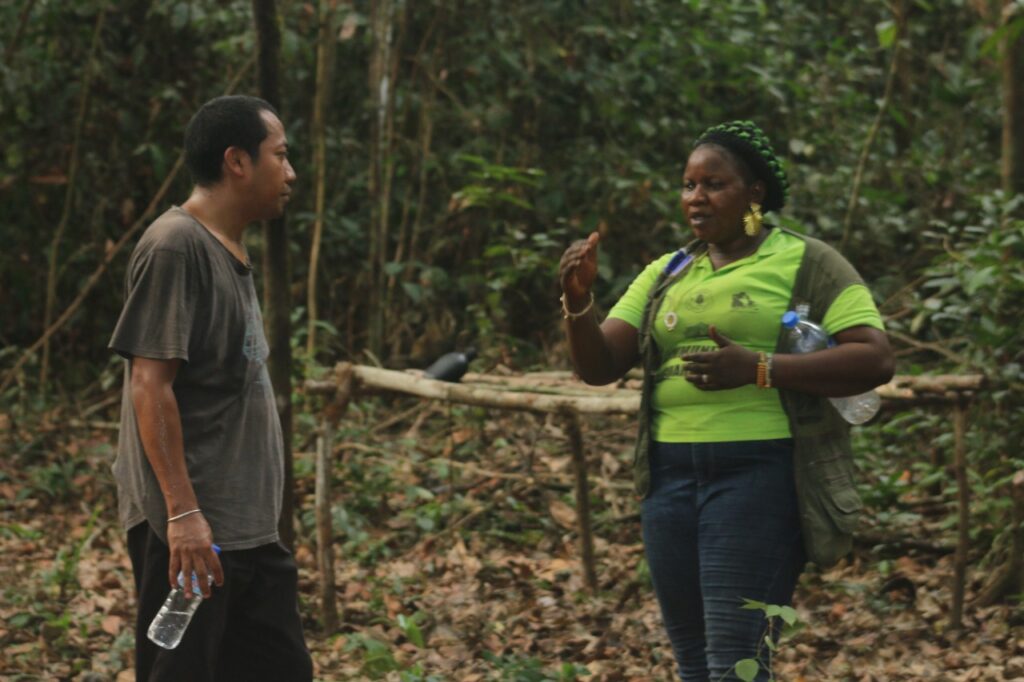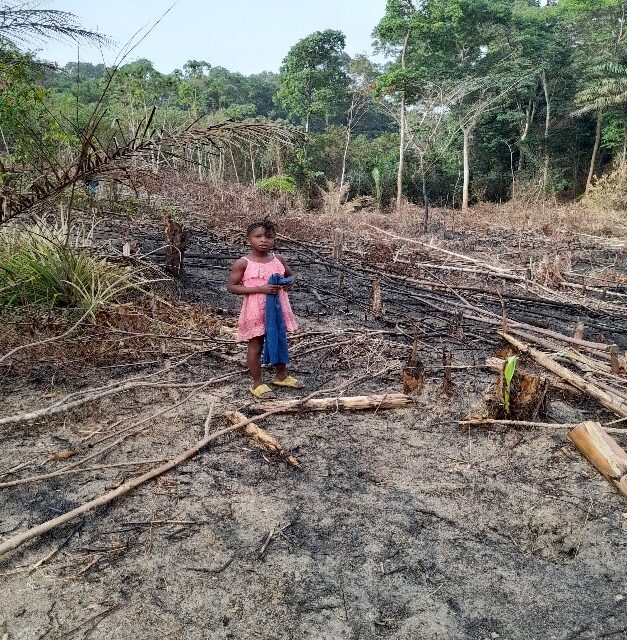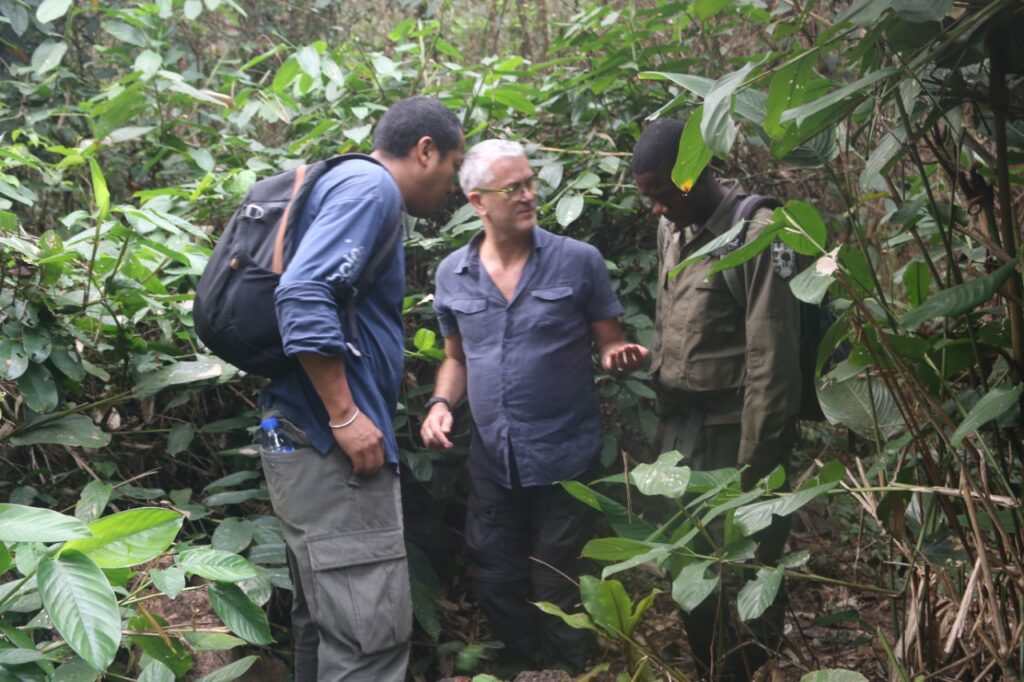Promoting sustainable agriculture poised to save the Gola Forest National Park in Liberia

By Alade Adeleke
A transect walk from Tima Town, headquarters of the Gola Forest National Park (GFNP) in Gbarpolu County, showcasing the richness of the forest of Liberia. The transect to the boundary of the National Park cuts across a stretch of the community forest and farmlands. As one approaches the buffer to the park, the forest thickens, as its volume increases in a canopy of full-size timbers and young understory trees and shrubs, punctuating its richness.
Going further, the canopy is broken by a 20-acre land, in the middle of the forest, four kilometres from Tima and about one kilometre to the boundary of the park, which was recently cleared and burned. This is called ‘forest land dis virgin for agriculture. The owners of the new farm are a young couple, who seemed unperturbed seeing the visiting team, or noticing any unpleasant reaction, although professing that they are aware that the boundary of the National Park is not far from their new farm. The creation of a hole in the heart of the forest is painful. It destroys the ecosystem by creating a mosaic of farmlands causing the forest to disconnect, leading to fragmentation. The act negates the benefits inherent in avoiding deforestation to reduce leakage which demonstrates Liberia’s readiness to combat global climate change.
Educating local communities in sustainable farming practices is crucial for reducing deforestation and preserving the ecosystem of the National Park. The Forestry Development Authority (FDA) of Liberia and the Society for the Conservation of Nature of Liberia (SCNL, BirdLife partner) place a high value on community participation in Land Use Planning around the Gola Forest National Park and in Community Forests.
The European Union-funded project PAPFoR in the Gola Landscape of Liberia and Sierra Leone supports Land Use Planning in critical conservation areas as one of its major components. The objective is to work closely with the communities to promote sustainable farming while conserving the rainforest. The project ensures that the Gola landscape is managed effectively by a cross-border partnership between governments, civil society, and communities through participatory land use planning, training of locals in establishing and managing community forestry, and effective community participation in conservation by implementing a co-management approach mechanism in conserving the Gola Forest National Park.
“With the support of community leaders and residents, we can ensure the long-term protection of the forests, through massive awareness, uphold the rights of the communities, safeguard critical habitats for endangered species, and help secure the livelihoods of the thousands of people who directly depend on this beautiful ecosystem. The Forest is the asset and future of the people, let’s embrace wise use of forest lands for the better of us all” said James P. Mulbah, PAPFor Project Coordinator in the country.
Active participation of community leaders in promoting sustainable land practices will not only provide multiple benefits but will further improve the capacity of the communities to lay claim on ownership of land use management systems for now and in the future.
Cover photo: Cleared and burned area for agriculture in the middle of the 3km buffer zone between the village of Tima and the boundary of the Gola Forest National Park in Liberia © Maminiaina Rasamoelina



The EU PAPFoR Programme is supported by the European Commission



